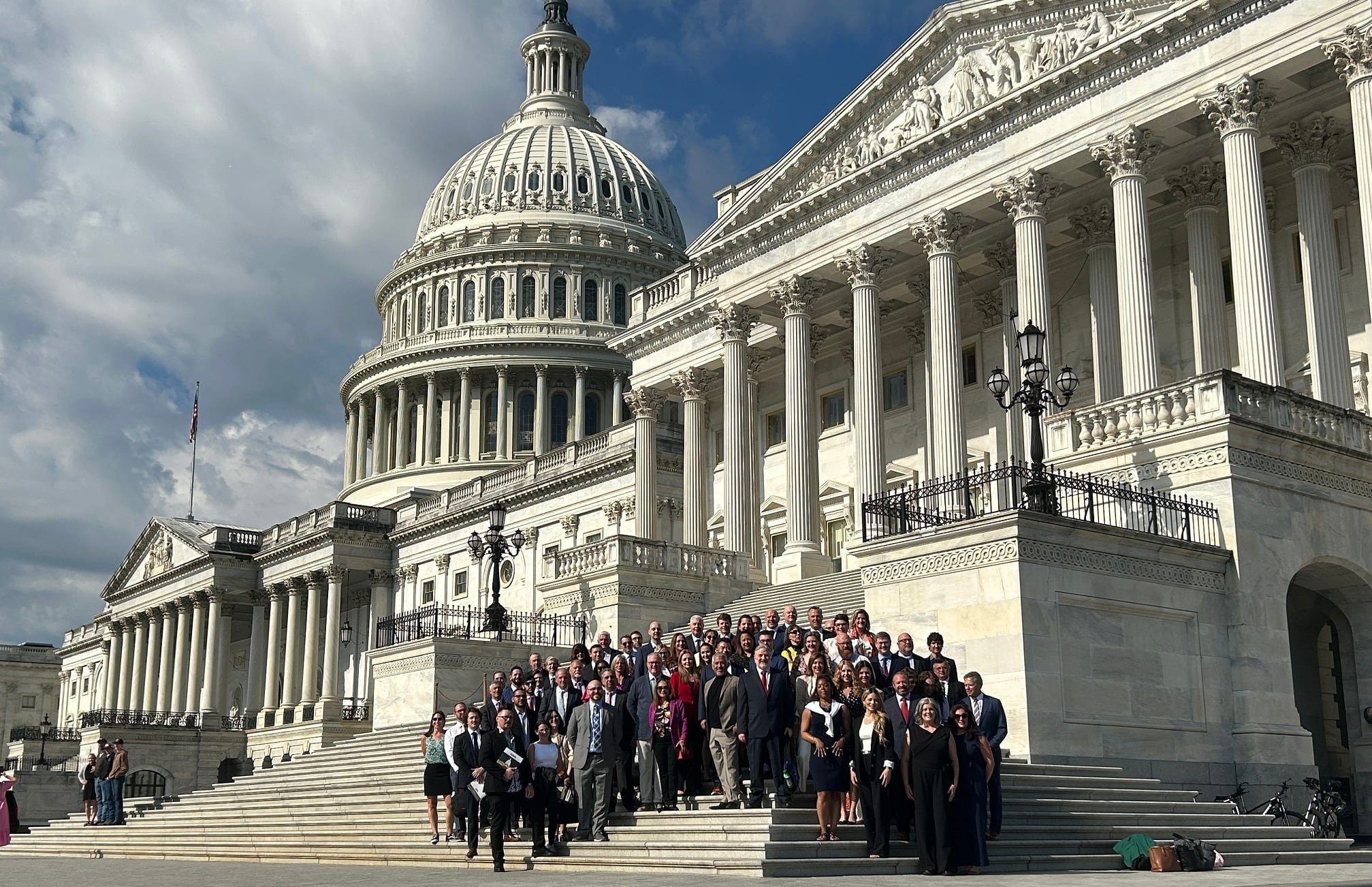NDIs
First up for discussion was the topic of New Dietary Ingredients (NDI). FDA recently released a constituent update on the Human Foods Program’s 2025 Guidance Agenda, with number three on the list being, “New Dietary Ingredient Notifications and Related Issues: Identity and Safety Information About the NDI: Guidance for Industry”.
First issued in 2011, the initial NDI draft guidance was met with significant industry backlash, which led the agency to go back to the drawing board. Five years later, it issued a revised draft guidance. That revised version was described as “more positive than negative” following the release, but some stakeholders still voiced concerns that the agency’s approach would dampen innovation.
Since that time, FDA has adopted more of a piecemeal approach to the NDIN guidance, stating that it is working “expeditiously” to finalize sections as and where it can. In March 2024, it released a final guidance for industry titled “Dietary Supplements: New Dietary Ingredient Notification Procedures and Timeframes: Guidance for Industry”, which focused on frequently asked questions about the NDIN submission and review process.
This was followed a month later by another document, this time a draft guidance titled “New Dietary Ingredient Notification Master Files for Dietary Supplements”. That draft guidance responded to requests from the dietary supplement industry for specific guidance on recommendations about Master Files for new dietary ingredient notifications (NDINs), according to a Constituent Update from the agency.
Despite hopes that other sections would subsequently be released, things then went quiet until last month when FDA released two educational videos and a supplemental fact sheet to boost awareness and understanding of the NDIN review process, followed by the Human Foods Program’s 2025 Guidance Agenda.
So, 14 years after its initial release, could we finally see the NDI guidance finalized?
“There’s still those four to six outstanding questions that you know going back to 2016 haven’t been resolved,” Dr. Daniel Fabricant, PhD, president and CEO of the Natural Products Association (NPA), told NutraIngredients. “I guess it may be put all into one guidance. I’ve heard some folks say, ‘Well, wait a second, doesn’t it go against the current administration that’s trying to reduce regulations,’ but this isn’t a new regulation. This is just clarity and guidance.
“There’s a lot of clearance and so on, but I can’t see as to why it would be held up, so the hope is that it gets out and it addresses those issues, [like] synthetic botanicals, toxicology testing and so on and so forth.”
“We’d rather see it sooner versus later,” he added. “I think it’s been long enough, but all that aside, as we’ve always said, the guidance, no matter what it says, the key is enforcement. We need that NDI enforcement piece that needs to be clear and present.”
NAC
This summer could also see the “rulemaking to provide by regulation that an ingredient is not excluded from the dietary supplement definition,” Dr. Fabricant, noting that NPA is “very confident relates to NAC.”
NAC (N-Acetyl Cysteine) is a derivative of the amino acid L-cysteine and a precursor of the cellular antioxidant glutathione. It is naturally occurring in foods like onions and garlic.
Despite being used as in supplements since the early 1990s, and therefore an “old dietary ingredient” according to the Dietary Supplement Health and Education Act (DSHEA) of 1994, the FDA declared in July 2020 that NAC was not a legal dietary ingredient because of its prior approval as a drug. NAC was first approved as an inhaled mucolytic drug in 1963.
The NAC issue concerned the industry as it saw the drug preclusion principle (which states an ingredient cannot be used in supplements if it is first approved as a drug) applied to an old dietary ingredient with decades of safe use. Many in the industry had assumed that such issues were settled for old dietary ingredients once DSHEA came into effect on Oct. 15, 1994.
In response to the FDA statements and market concerns, Citizen’s Petitions were filed in the summer of 2021 by NPA and the Council for Responsible Nutrition (CRN). The CRN petition asked the agency to reverse its position that NAC-containing products cannot be dietary supplements. The NPA petition asked FDA to either determine that NAC is not excluded from the definition of a dietary supplement or, in the alternative, initiate rulemaking to make NAC a lawful dietary supplement under the Food, Drug, and Cosmetic Act.
At the end of March 2022, FDA denied the CRN petition in its entirety and denied the first part of the NPA petition. In response to NPA’s request for rulemaking, it said that it was considering this.
FDA published its final guidance in August and stated it will exercise enforcement discretion for NAC, basically turning a blind eye to the sale of NAC-containing dietary supplement products so long as products are not making non-compliant disease claims. The guidance also initiates the process for export certificates for NAC.
According to this post, the agency is now working towards rulemaking for NAC.
“Kind of like seeing the Yeti or Bigfoot, we’ve certainly heard the rumors of there being a document to address that, going through the different bowels of the agency,” Dr. Fabricant said. “I would think the regulation language would be very similar to the guidance language. I think it’s very concise to the point, and it would help in terms of making it clear that it’s even more of a stable horizon.”
NMN
Related to NAC, the FDA is due to respond to a Citizen Petition on Nicotinamide Mononucleotide (NMN), filed by NPA and the Alliance for Natural Health (ANH) in March 2023. This was after a federal court granted a joint motion in October 2024 to stay proceedings in a lawsuit to allow the agency to respond to the petition to resolve the NMN case without further litigation.
As reported by NutraIngredients, the decision stated the FDA does not intend to prioritize enforcement action related to the sale and distribution of NMN-containing products that are labeled as dietary supplements, provided that they would be lawfully marketed dietary supplements if NMN is not excluded from the definition of “dietary supplement”. The motion added, however, that FDA would reevaluate its enforcement priorities if it became aware of new safety concerns.
“I think the way we addressed it [the NMN issue] legally is very similar to what happened with NAC,” Dr. Fabricant said. “So, we’re hopeful that’s the outcome. If not, then the silver lining, if that was the case, is we can start to address some of the issues we need to address for drug preclusion, [like] what is a relevant clinical trial date?”
The states
Moving from the federal level to the states, Kyle Turk, NPA’s vice president of government affairs, noted that a number of state legislatures, because of historical context, are adjourning for their legislative sessions for 2025 meaning that bills that attempted to restrict access to dietary supplements will not move forward.
“All things considered, it’s been a really successful several months for the industry,” he told NI. “We were able to defeat bills in Texas, Illinois, going back to last session, Michigan, Maryland. Currently on the docket right now, what we’re still concerned about is a bill in Massachusetts and then New Jersey. I was up in Boston about a month ago testifying in opposition to the bill in Massachusetts, it has since gone through the Joint Committee on Public Health and has been referred to the Joint Committee on Healthcare Finance, and that’s typically where that piece of legislation has gotten hung up in past years.
“But I think one thing to consider right now is that there is a real desire from state legislators who either support the administration or oppose it, to use their ability to create legislation that is in defiance of the federal government or in support of the federal government—as we’ve seen with some of these MAHA-themed bills.”
Watch the video for the full interview.




